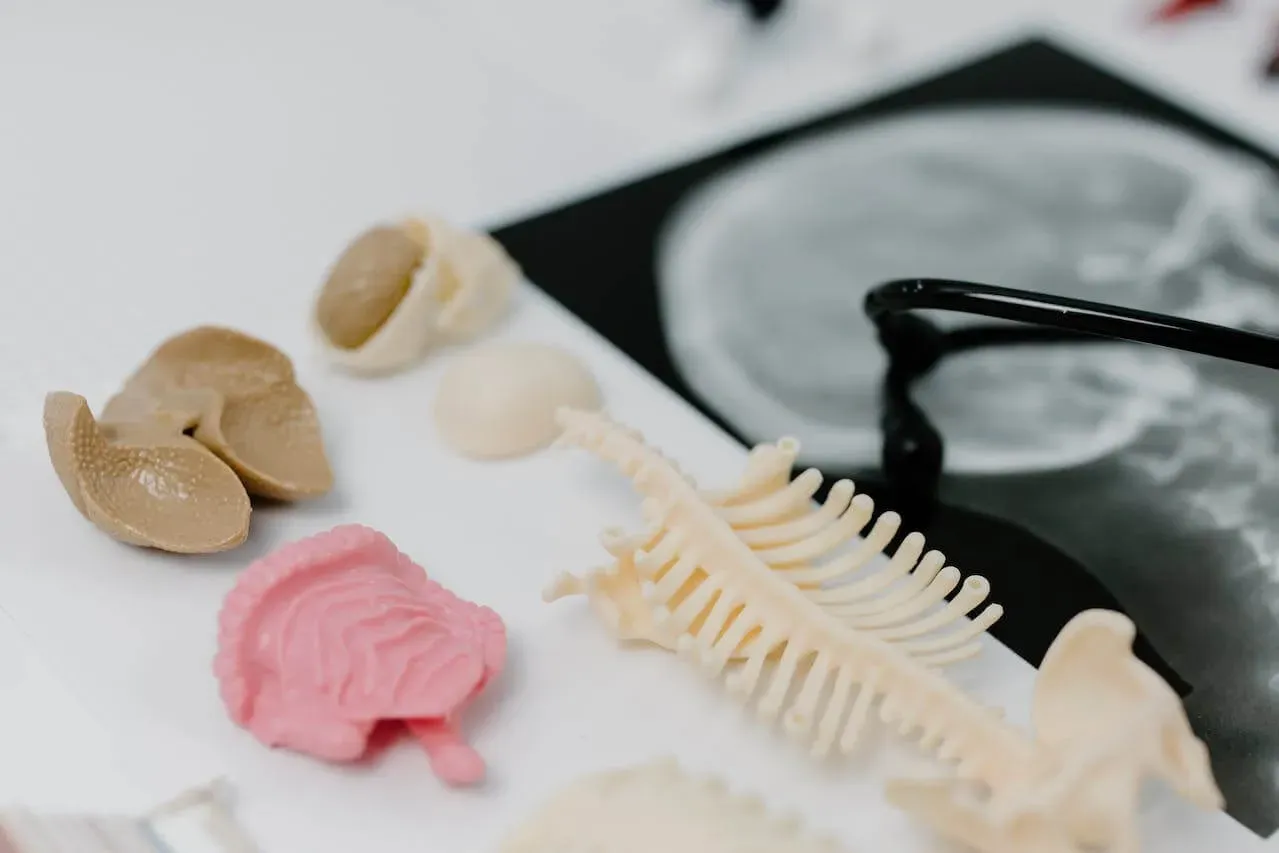How to Pay for Medical School

The opinions expressed in this article are the author's own and do not reflect the view of Pathward®.
Numerous students feel inundated when trying to figure out how to pay for medical school. However, attending medical school is a significant milestone in their journey toward becoming a doctor, and if you’ve made it to med school, you should be proud!
I know the cost of medical school can be a daunting obstacle for many aspiring physicians. That’s why, in this article, I’ll explore various strategies for paying for medical school and provide you with valuable insights into managing your finances during your medical education.
Secure your financial future by applying for scholarships to fund your med school education. Sign up for a free Bold.org account to apply for medical school scholarships today!
Understanding the Costs of Medical School
Before I delve into financing options, it's important to understand the expenses associated with medical school. Medical education costs typically include tuition and fees, living expenses, and books and supplies.
Attending medical school is a significant financial commitment, and it's essential to have a clear understanding of the costs involved. Let's explore each component in detail.
Med school isn't for everyone, but you can still work in medicine without becoming a doctor. Apply for nursing scholarships today to ease the financial burden of paying tuition by yourself.
Tuition and Fees
Tuition fees can vary widely across different medical schools. According to the Association of American Medical Colleges (AAMC), the average cost of tuition and fees for medical school in the United States during the 2020-2021 academic year was approximately $41,438 for in-state students at public schools and $61,194 for out-of-state students. For private medical schools, the average cost was roughly $58,668.
It's important to note that these figures represent the average medical school costs only, and tuition fees can differ significantly depending on the specific medical school you choose. Some medical schools may have higher tuition fees due to their reputation, location, or specialized programs they offer.
When considering medical schools, it's crucial to research and compare the tuition fees of different institutions to make an informed decision about your education.
Apply for the Bold Debit Card today!Living Expenses
In addition to tuition fees, you must also consider living expenses, including housing, food, transportation, and utilities. Location plays a significant role in determining living costs. For example, urban areas tend to have higher living expenses compared to rural areas.
When estimating your living expenses, consider factors such as the cost of housing in the area where your medical school is located. Rent prices can vary greatly depending on the city or town, and it's essential to research the local housing market to get an accurate estimate.
Other factors to consider when budgeting for living expenses include the cost of groceries, transportation, healthcare, and personal expenses.
Books and Supplies
Medical school requires a multitude of textbooks, reference materials, and necessary equipment. The cost of books and supplies can vary depending on your curriculum and specialty.
On average, medical students spend around $1,200 to $1,500 per year on books and supplies. However, it's important to note that these costs can fluctuate and increase as you advance through your medical training. Additionally, some medical schools provide students with access to online resources and digital textbooks, which can help reduce the overall cost of books and supplies. It's worth exploring these options and considering their potential impact on your budget.
By considering tuition and fees, cost of living, and books and supplies, you can develop a comprehensive budget that will help you navigate the financial aspects of your medical school cost.
Get Matched to Thousands of Scholarships
Create your Bold.org profile to access thousands of exclusive scholarships, available only on Bold.org.
Create Free ProfileFinancial Aid Options
When it comes to pursuing a medical education, the cost can be a significant concern for many aspiring doctors. There are various financial aid options available to help you pay for medical school, ensuring that your dreams of becoming a healthcare professional can become a reality.
Scholarships and Grants
One of the first options to explore is scholarships and grants. These are forms of financial aid that do not require repayment, making them highly desirable for medical students. Many organizations, foundations, and medical institutions offer scholarships specifically for aspiring doctors. It's essential to research and apply for scholarships early, as deadlines may vary. Additionally, some scholarships may have specific requirements, such as maintaining a certain GPA or pursuing a particular medical specialty.
Furthermore, scholarships and grants not only provide financial assistance but also recognition for your achievements. Being awarded a scholarship can be a testament to your hard work and dedication, boosting your confidence and opening doors to future opportunities.
Apply for essay scholarships to get a chance to persuade donors why you should win. Or if you're short on time, these no-essay scholarships require just a few minutes of your time.
Federal and Private Loans
If scholarships and grants do not cover your entire medical school expenses, loans can bridge the gap. Financial aid, including federal loans, such as the William D. Ford Federal Direct Loan Program, offers competitive interest rates and flexible repayment options. The federal loan program provides various options, such as subsidized loans, which do not accrue interest while you are in school, and unsubsidized direct loans only, which start accruing interest immediately.
Private loans from banks and other financial institutions are additional funding options worth considering if financial aid isn't enough. These loans may have different terms and conditions compared to federal loans, so it's crucial to carefully review and compare the options available. Private loans often require a credit check, but they can provide the necessary funds to cover any remaining expenses.
It’s important to consider all the loan options available to you and to understand fully the implications associated with each loan so that you can make an informed decision.
Work-Study Programs
Another financial aid option to consider is work-study programs. These programs provide an opportunity to earn income while concurrently studying. Work-study programs typically offer part-time jobs on-campus or in healthcare facilities, allowing you to gain practical experience while helping cover your expenses. The jobs available through work-study programs can vary, ranging from administrative tasks to research assistance or even clinical support.
By working in a healthcare setting, you can gain valuable hands-on experience, build relationships with medical professionals, and develop a deeper understanding of the healthcare industry. This experience can be invaluable as you progress through your medical education and prepare for your future career.
It's important to note that work-study programs may have limited positions available, so it's advisable to apply early and express your interest in healthcare-related roles as part of your financial aid package. Additionally, some work-study programs may have specific requirements, such as maintaining a certain GPA or demonstrating financial need.

Saving and Budgeting for Medical School
Creating a budget and implementing savings strategies are essential for successful financial management during medical school. Medical school is a significant investment, and having a solid financial plan in place can help alleviate stress and ensure you stay on track.
Browse the Bold.org Blog to find useful information about scholarships for medical school.
Creating a Budget
To start, analyze your income and expenses. Consider your income sources, including scholarships, loans, and any part-time jobs. It's crucial to have a clear understanding of how much money you have coming in each month.
Next, identify your monthly expenses. This includes fixed expenses such as rent, utilities, and transportation, as well as variable expenses like food, entertainment, and personal care. It's important to be thorough and realistic when estimating your expenses.
Budgeting apps can be useful tools for tracking your spending and ensuring you stay within your financial limits. These apps can help you categorize your expenses, set spending limits, and provide visual representations of your financial situation.
Remember, creating a budget is not a one-time task. It's an ongoing process that requires regular review and adjustments. As your circumstances change, such as receiving a new scholarship or taking on additional expenses, you'll need to update your budget accordingly.
Branching out and applying to a variety of scholarships can help improve your budget. See if you're eligible to apply for these pharmacy school scholarships!
Saving Strategies
Saving money while in medical school can seem like a challenging task, but it's not impossible. With careful planning and smart choices, you can build up your savings and have a financial cushion for unexpected expenses.
One of the most effective saving strategies is to look for cost-saving opportunities. For example, instead of buying brand-new textbooks, consider renting or buying used ones. This can save you a significant amount of money over the course of your medical education and help you leverage your financial aid.
Cooking your meals instead of eating out is another excellent way to save money. Meal prepping can be a time-efficient and cost-effective way to ensure you have healthy and affordable meals throughout the week. Plus, it can be a fun and creative way to explore different recipes and cuisines.
Additionally, taking advantage of student discounts whenever possible can help stretch your budget further. Many businesses offer special discounts for students, so be sure to ask and show your student ID whenever you make a purchase.

Smart Financial Tool for Students
In the pursuit of managing education costs effectively, the Bold Visa® Debit Card emerges as a novel financial tool designed specifically for students. With its unique rewards system* and absence of traditional banking fees, this card presents an innovative way to budget and pay for school expenses.
Earn as You Spend
The Bold Debit Card operates on a simple yet powerful principle: earn points for every dollar spent. For every $1 you spend across any category, you earn 1 Bold Point.* This feature is particularly beneficial for students who can accumulate points through their regular spending, be it textbooks, supplies, or daily expenses.
Redeem Points for School Payments
What sets the Bold Debit Card apart is its reward redemption options. You have the flexibility to redeem your Bold Points either for cashback or, more significantly, for student loan payments. With 2,000 Bold Points equating to $15 in student loan payments (as opposed to $10 in cashback), this card incentivizes students to use their rewards towards reducing their education-related debt.*
Budget-Friendly and No Hidden Fees
With no annual fees, no foreign transaction fees, and no hidden charges,† the Bold Debit Card aligns with a student's budgetary constraints. It's a straightforward approach to banking, ensuring that students can maintain their finances without worrying about accruing extra charges.
Simple Money Handling
The card also offers practical features like direct deposit† for paychecks and easy transfers of funds from your card to your bank, making it a convenient option for students to handle their day-to-day financial transactions.
Security and Peace of Mind
Security is paramount, and the Bold Debit Card addresses this with robust anti-fraud infrastructure and FDIC insurance on deposit accounts up to $250,000. The FDIC provides insurance of up to $250,000 per depositor at banks and savings institutions covered by FDIC insurance.**
This safeguard is extended to all your deposits at any FDIC-insured bank and applies to every category of account ownership. This commitment to security provides students with the peace of mind they need when managing their finances.
Although FDIC insurance covers deposits in all types of accounts at FDIC-insured banks, it does not cover non-deposit investment products, even those offered by FDIC-insured banks. For more information about coverage and limitations, see the FDIC website.
A Step Towards Financial Independence
By integrating the Bold Debit Card into your financial toolkit, students can streamline their budgeting and proactively contribute to their financial aid. It empowers students to earn rewards* from their everyday transactions and apply them directly toward their educational expenses, fostering a sense of financial responsibility and independence.
Get Started with the Bold Debit Card
Earn rewards that help pay for school.* Apply for the Bold Debit Card today!
Join Bold.orgReducing Expenses
To further reduce expenses, consider living with roommates to split housing costs. Sharing a living space with others can not only save you money but also provide a support system during the demanding years of medical school.
When looking for housing options, prioritize affordability and proximity to your medical school. Living closer to campus can save you time and money on transportation expenses.
Another way to reduce expenses is by planning meals and buying groceries in bulk. This can help you save money in the long run and minimize food waste. Look for local farmers' markets or discount grocery stores to find affordable and fresh produce.
Remember, financial management during medical school is a marathon, not a sprint. It requires discipline, planning, and occasional sacrifices. By creating a budget, implementing saving strategies, and reducing expenses, you can set yourself up for financial success both during medical school and beyond.
Repaying Medical School Loans
Once you complete your medical education and start practicing medicine, repaying your medical school loans becomes a crucial aspect of your financial journey. It's not just about paying off a debt; it's about managing your finances effectively while pursuing your passion for healing and helping others.
Medical school loans can be substantial, and understanding your own financial aid loan repayment options is key to successfully navigating this financial responsibility. Federal loan programs offer various repayment plans, providing flexibility to accommodate different financial situations.
Understanding Your Repayment Options
When it comes to repaying your medical school loans, it's essential to review and select a plan that aligns with your financial goals and circumstances. Federal loan programs offer income-driven repayment options, which adjust your monthly payments based on your income and family size. These plans can be particularly beneficial for new physicians who may start with lower salaries but have the potential for higher earnings in the future.
Income-driven repayment plans, such as Income-Based Repayment (IBR), Pay As You Earn (PAYE), and Revised Pay As You Earn (REPAYE), can provide relief by capping your monthly payments at a percentage of your discretionary income. This ensures that your loan payments remain affordable, allowing you to focus on building your medical career without the burden of overwhelming debt.
Loan Forgiveness Programs
While repaying your medical school loans is a priority, it's worth exploring loan forgiveness programs that can potentially lighten your financial load. These programs offer the opportunity to have a portion or all of your medical school loan debt forgiven, provided you meet specific eligibility criteria.
One notable student loan debt forgiveness program is the Public Service Loan Forgiveness (PSLF) program. This program forgives remaining loan balances for individuals working in qualifying public service positions after making 120 qualifying payments. If you choose a career path in public service, such as working in a nonprofit hospital or community health center, the PSLF program can significantly alleviate your financial burden.
Additionally, some states offer loan forgiveness programs specifically tailored for healthcare professionals who work in underserved areas. These programs aim to incentivize physicians to practice in regions where access to quality healthcare is limited. By committing to serving these communities, you may be eligible for loan forgiveness, allowing you to make a meaningful impact while repaying your medical school debt.
When entering repayment for your student loans, it’s important to find the best option for you and your financial situation. It’s important to research what is available to you and understanding what is required of you to pay back your loans.

Refinancing Medical School Loans
If you have a high interest rate on your existing loans, refinancing can potentially save you money in the long run. Refinancing involves obtaining a new loan with more favorable terms to pay off your existing loans. However, it's crucial to carefully evaluate the terms and compare offers from different lenders to ensure that refinancing is the right choice for your specific situation.
When considering refinancing, it's essential to assess your financial goals and evaluate the potential benefits. Refinancing can help you secure a lower interest rate, reduce your monthly payments, or even shorten the repayment term. However, it's important to note that refinancing federal loans with a private lender may result in the loss of certain federal loan benefits, such as income-driven repayment options and loan forgiveness programs.
Before making a decision, it's advisable to consult with a financial advisor or student loan expert who can guide you through the refinancing process and help you make an informed choice. They can assess your individual circumstances, evaluate the potential savings, and ensure that refinancing aligns with your long-term financial goals.
Repaying medical school loans is a significant financial responsibility, but with careful planning and exploration of available options, you can effectively manage your debt while pursuing a fulfilling career in medicine.
Before refinancing your loans, you’ll want to consider if it is the best option for you, given your current situation. Be sure to think carefully about whether this decision is right for you.
Planning for the Future
As a future physician, it's important to plan for your financial future beyond medical school.
Financial Planning Post-Medical School
Seeking professional financial advice is highly recommended once you begin your medical career. A financial advisor can guide you in managing your assets, building an emergency fund, and making wise investment decisions to secure your financial future.
Managing Debt and Building Wealth
Effectively managing your debt and building wealth is crucial for long-term financial success. Use websites like Bold.org to help alleviate the financial burden. Developing a strategy to pay off your student loans while also saving and investing can allow you to achieve your financial goals faster. Prioritizing debt repayment and monitoring your spending habits can help you achieve financial independence.
Retirement Planning for Doctors
Although retirement may seem far away, it's never too early to start planning for it. Opening a retirement account, such as an individual retirement account (IRA) or a 401(k), can provide you with tax advantages and a secure future. Consulting with a financial advisor who specializes in retirement planning can help you create a comprehensive plan tailored to your needs and goals.

Frequently Asked Questions About Paying for Medical School
Is medical school really worth the high cost?
While the cost is significant, medical school is an investment in your future career as a healthcare professional. The potential long-term earnings and the fulfilling nature of the profession often outweigh the initial financial burden.
How can I manage the high cost of medical school?
Research different medical schools and look into the cost of living, financial options, and cost of tuition. Consider applying for scholarships and using financial aid programs. Also, look into additional financial tools like the Bold Debit Card for rewards.*
What makes the Bold Debit Card beneficial for medical students?
It allows you to earn points on purchases, which can be redeemed for student loan payments or cashback, aiding in financing your education.*
Can medical school debt be forgiven?
Yes, programs like Public Service Loan Forgiveness offer loan forgiveness for qualifying medical professionals in public service roles.
Effective financial planning is key to focusing on your education and future medical career. Navigating the financial aspects of medical school is a significant part of your journey to becoming a doctor. Leveraging resources like scholarships, the Bold Debit Card, and loan forgiveness programs can help address these expenses.
Ease your student loan burden. Sign up for a free Bold.org account, apply for straightforward scholarships, and use the Bold Debit Card for financial security.
Bold.org Visa® Debit Card is a demand deposit account provided by Pathward®, N.A., Member FDIC. Bold.org Visa Debit Card is issued by Pathward, N.A., Member FDIC, pursuant to a license from Visa U.S.A. Inc. Card can be used everywhere Visa debit cards are accepted. Visa is a registered trademark of Visa U.S.A. Inc. All other trademarks and service marks belong to their respective owners. Register your Card for FDIC insurance eligibility and other protections.
*This product or service is independent of Pathward® and Visa and is neither endorsed nor sponsored by Pathward® or Visa.
**Funds are FDIC insured, subject to applicable limitations and restrictions, once Pathward receives the funds deposited to your account.
†The features associated with the Bold Debit Card discussed in this blog post are provided by Bold.org and are not affiliated with our Bank partners, Pathward®, or Visa.